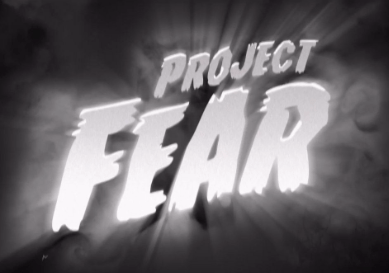A year ago today, Britain woke up to find the union saved – but only just. In 10 Downing St, the 45 per cent voting ‘yes’ looked like a victory, and the whole issue closed. I was in my hometown of Nairn that day, in the Highlands, where things looked rather different: after visiting pupils in my old school I wrote that, far from being closed, the debate had just begun. It wasn’t just the depressing closeness of the result, but the way the ‘no’ campaign had relied upon relentless negativity to make its case. As Joe Pike puts it in his fascinating account, the campaign ‘left a kingdom united, but a country divided’
The case for the United Kingdom, the greatest alliance of countries that the world has ever seen, was reduced into a few cold-hearted (and, often, barely-credible) arguments that Scotland was too small or too poor to survive as an independent state. That we’d lose the pound, business would evacuate – that it’d be the death knell for jobs, pensions, the EU, public services. This argument, dubbed ‘Project Fear’, was poison: strong enough to damage the enemy and (just) win the referendum. But it made the case for the Union seem appallingly weak, and based on scaremongering. That poison has been swirling around the bloodstream of Scottish politics ever since.
The negativity of that campaign, and the abject failure to make the positive case for the Union, set the scene for the subsequent quadrupling of SNP membership and the party taking 56 out of 59 seats. The Battle for Scotland has begun anew, as I argue in my Daily Telegraph column.
And where is David Cameron? He genuinely has a deep emotional commitment to the Union – and his is the politics of optimism. He’s teased for it. So why did he allow this poisonously negative campaign? The Scottish Unionists, at the time, blamed Andrew Cooper, his then chief strategist. Anthony Seldon’s new book about Cameron says more about Cooper’s role.
Drawing from a rich number of inside sources, he confirms that Cooper had wrongly been “sanguine” about the referendum result believing that “the tide will turn and the ‘no’ campaign will triumph’. Wrong. The tide did turn, but to the advantage of the ‘yes’ camp. ‘Yes’ was on 29pc in Aug 2013, broke through 40pc in the last month of the campaign (Sep 2014) and closed at 45pc. It has stayed around that level ever since.
So how did the ‘no’ campaign inflict so much harm to its own side? Here’s what Seldon has to say (annoying, he writes in the present tense):-
Cooper’s advice is that love-bombing Scotland and talk of common bonds will not in fact do the business; the emphasis must instead be placed on independence being irreversible and the economic consequences of Scotland voting ‘yes’. His hard-nosed advice is not universally popular in No10.
Cooper remains very defensive about this. His reliance on negativity sprang from his polling and was agreed with many others, including the hierarchy of Scottish Labour. (It was not, then, clear that the soon-to-be-obliterated party was the worst organisation in Scotland from which to seek election advice.) Cooper said later that the only criticism he would allow of the Scottish campaign is that there was not enough negativity.
I have to admit to having doubts about the quality of Cooper’s analysis in general. On polling day he told the Guardian that the campaign run by his old adversary, Lynton Crosby, was ‘a prolonged exhibition of insanity.’ Rather successful insanity, as it turned out. Seldon’s book tells us that in No10, Cooper had earlier complained to Cameron about Crosby was carrying out his own research rather than using Cooper’s own.

But was Crosby wrong to be wary of Cooper’s advice? After Cooper left, he rejoined his firm Populus which gave percentage chances of various outcomes. The final analysis of the ‘predictor’ (pictured, right) was that Cameron a 0.5 per cent likelihood of winning a majority. Now, everyone made wrong calls about the election, myself included. But no one else gave Cameron such low chance of success. I quote this not to rub Cooper’s nose in it, but because it’s the most vivid example of how ‘the data’ can often talk complete and utter rot. The most sophisticated machines can get it utterly wrong. There is no substitute for feel and political judgement – especially Prime Ministerial judgement.
It took two Englishmen, Tom Holland and Dan Snow, to organise a last-minute positive pro-Union campaign message, so appalled were they about the brutal tactics being used by the ‘no’ campaign. Perhaps, at so late a late stage, Project Fear was the only way to win. But had the positive case for the union been made with energy and consistency from the offset, then I suspect the referendum really would have put an end to the matter.
Ruth Davidson, the leader of the Scottish Tories, often speaks more sense about this than the rest of her party put together. She made a great speech in June urging Whitehall to “wake up.” As she put it:-
“The SNP’s rise tells us we need to show a similar sense of vision and care about our own national story as they have for theirs. We who care about the Union – we all need to wake up. As others have put it, we need not just more devolution, we need more Union too.”
Seldon’s book doesn’t say more about the the opposition to Cooper’s negativity strategy, but I suspect it came from Cameron himself. The PM’s speeches on the unions were superb, generous, open-hearted and perfectly pitched. His interventions were highly effective. As Cameron mulls what to do with his last few years in power, he ought to think about returning to Scotland. Having authorised such a toxic medicine, he ought to take more care over the patient now.







Comments